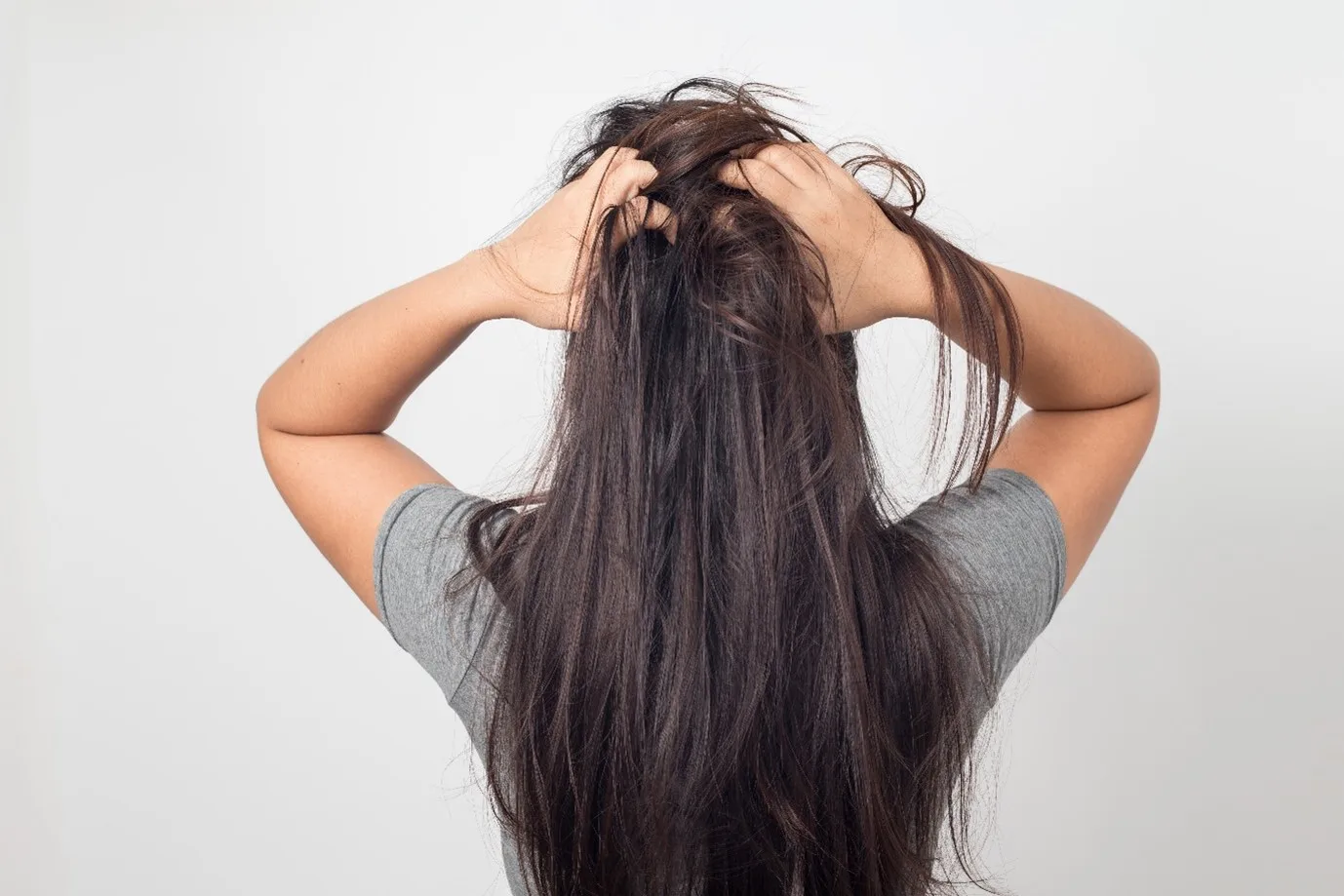DOES SCRATCHING HAIR CAUSE HAIR DAMAGE?

Scratching can give you relief but is it also causing you damage?
Everyone scratches their head. Nobody has gone through life without a scratch, either because of some ailment or just confusion. Usually when your skin is irritated, a signal is sent to your brain that triggers a desire to scratch. It gives you temporary relief and distracts your brain from the irritant. But scratching heads won’t take care of the problem and the more you scratch, the more damage you see.
What happens when you scratch?
What itchy scalp remedy should you use?
What happens when you scratch?
Scratching works by providing a source of mild pain, which diverts attention from the itch. That’s why it feels so good to scratch, but what happens if you scratch your scalp too much? Scratching is technically running your nails, fingers or objects across the skin. This can lead to a whole bunch of issues, especially when scratching scalps.
-
Cuticle damage-
Your hair strands have a scaly covering known as cuticle. It protects the hair shaft and prevents moisture from escaping out. When you scratch an itchy scalp, the back-and-forth motion creates friction and damages the protective cuticles. This in turn harms your hair strand, weakens it, and causes breakage. -
Inflammation and infections-
This can answer your worry - is scratching your scalp bad. Scratching scalps can transfer dirt, germs and oil onto your head, which makes your skin vulnerable to infections. It triggers inflammation which can extend into your follicles. -
Hair loss-
Inflamed follicles can weaken the hair strands, an outcome of constant scratching. This can reduce the hold that your hair strands have on the scalp and increases hair fall. If you have bleeding and scabbing due to scratching your scalp, it can cause scarring which leads to temporary hair loss. -
Dandruff and flaking-
Scratching can disrupt the oil layer and add fungus to the scalp. Both of these are factors in dandruff and can trigger flaking. The skin sheds to get rid of the irritant or foreign object, and scratching just adds more of that. If you’re wondering, is it bad to scratch dandruff, this should help you out.
What causes an itchy head?
There are various reasons for your question of whys my scalp itchy. Figuring out the source of your problems can actually help you find the correct itchy scalp treatment.
-
Allergic reactions-
Maybe you started using some new product or some new medication, but allergic reactions are quite common. External products generally trigger a reaction at the point of application. -
Scalp Psoriasis-
Scalp Psoriasis is an autoimmune disease that affects a very small portion of the world. It is caused by an overactive immune system which leads to a build-up of skin cells. You might see red scaly skin on your scalp and it’s important to get a medicated itchy scalp treatment. -
Inflammation-
When germs, dirt and oil get trapped on your scalp, it can generate a reaction from your body and leave you with a scratching head. Blocked pores, poor hygiene and inflamed follicles are a disastrous combination. -
Dandruff-
This affects half of the people in the world and is characterised by intense itching, redness and flaking of dead skin cells. A naturally occurring fungus breaks down any excessive oil build-up on your scalp and produces a bout of dandruff. -
Sunburn-
Living in a tropical climate, you might forget that your head is boiling whenever you’re out in the sun. This can dry out your scalp and cause an itchy flaky scalp. The sweat can also evaporate, leaving behind the natural salts that aggravate an itch.
What itchy scalp remedy should you use?
Fear not as there are a bunch of things you can do to solve your itching. It’s important to test out these solutions with the right quantities and see which one works for you.
-
Aloe Vera-
Applying aloe vera gel directly onto your scalp can give you immediate relief from itching. It contains properties that can curb the growth of fungus, break any oil build-up, and reduce any inflammation. You can also create hair masks with aloe vera. -
Neem-
Boiling neem leaves in water and applying the liquid after a shampoo can reduce your scalp itch. It has been effectively used against dandruff for a very long time and has strong anti-bacterial properties. -
Apple Cider Vinegar-
Often found in kitchens, this is an effective home remedy for itchy scalps. It is anti-inflammatory in nature, can get rid of any fungus, and is known to help with an itchy head. Apply a diluted version of apple cider vinegar onto your head after shampoo. -
Oils-
Certain oils are known to be effective against the itch, like tea tree oil. This strong essential oil can get rid of the reason for your itching and moisturise at the same time. Add a few drops to your shampoo or use it with a carrier oil like coconut oil. -
Keep your head clean-
Shampoos for itchy scalp have shown to be effective with this problem. There are even shampoos specific to ailments such as dandruff, like the Head and Shoulders Neem which can remove any dandruff causing germs. But this doesn’t mean that you go ahead and think - should you scratch your scalp when washing hair.
In general, you should avoid scratching your head so as to not cause more problems. Just figure out the origin of your problem and find an effective solution for it. Make sure you keep your hair and scalp clean, with products like Head and Shoulder 2 in 1 Smooth and Silky , which gives you the combined advantages of a shampoo and conditioner.



